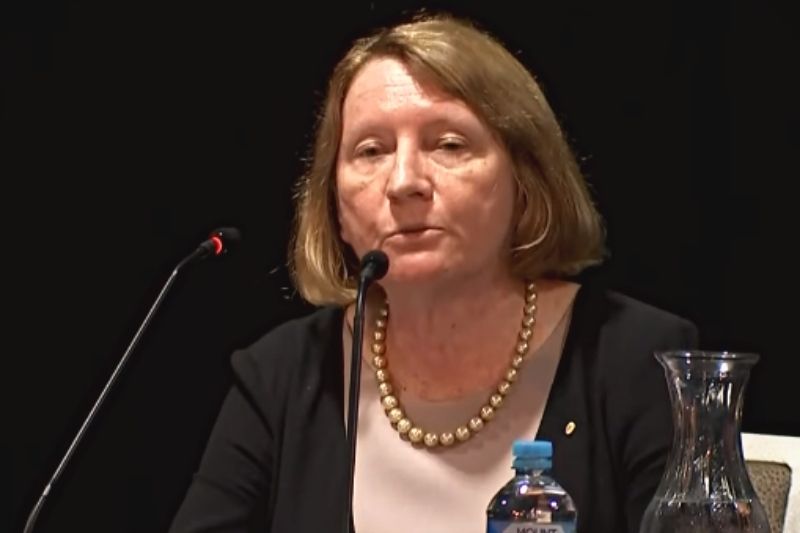Since August 2022 the Royal Commission into the Robodebt Scheme has been gathering evidence about one of the greatest public policy and administrative failures of recent times. Systemic failures of governance, leadership and common sense has featured heavily in evidence before the Commission. The Scheme’s existence relied upon the then Government’s indifference towards those on welfare and a social security system which is no longer fit for purpose.

Over the past two decades there have been some fifteen Royal Commissions established by the Australian government. Notable amongst these are the inquiries into the misconduct of the banking industry, aged care quality and safety; and the institutional responses to child sex abuse. Royal Commissions are regarded as the highest form of inquiry on matters of public importance. The investigative powers of the Commission are extensive, though the implementation of recommendations by governments can be less than fulsome.
The Robodebt Scheme was an initiative of the Coalition government in 2015. Its primary purpose was to automate the process of identifying and recovering debts to the Commonwealth from people who were in receipt of welfare support. This budget measure anticipated billions of dollars in savings to the Government’s budget bottom line. Instead, following a successful class action, the then Morrison government was forced to settle the claim against it, wiping the debts of some 381,000 people and costing taxpayers a staggering $1.8 billion.
Not only had the scheme failed to deliver on the billions of dollars of budget savings, it was labelled by Justice Bernard Murphy, the presiding Federal Court justice, as a massive failure and a shameful chapter in public administration.
The evidence before Commissioner Catherine Holmes AC SC, has been both illuminating and damning. Ably supported by Counsel Assisting, there has been a forensic exploration of the Scheme, with witnesses from the departments of Social Services (DSS) and Human Services (DHS) visibly uncomfortable with any line of questioning touching on the lawfulness of the Scheme. Such was the concern that there appeared to be reticence in appealing decisions adverse to the department, where the lawfulness of the debt calculation was raised. In the eyes of many this was a deliberate strategy to protect the Scheme from legal scrutiny as to its lawfulness.
Rather than acknowledging and addressing the legal issues concerning the Scheme, the Commission heard that the Government would instead mount a media campaign in the defence of it.
'Despite the many failings of the Scheme, it is difficult not to turn one’s mind to the question of whether those failings, in part, reflect a welfare system whose architecture and foundations are out of date.'
Rachel Miller, the former media adviser to Alan Tudge, the then Minister for Human Services, told the Commission that she developed and implemented a media strategy designed to arrest control of the public narrative about the Scheme. The Commission heard that central to this strategy was the provision of stories and personal details of welfare recipients to sympathetic media outlets as a way to refute concerns about Robodebt and more cynically call into question the integrity of the complainants. Asked whether the strategy was successful, Miller said yes.
The Government’s strategy to undermine legitimate criticism of the scheme was something out of House of Cards. It showed a level of desperation to protect a flawed system and more concerning how far it would go to silence dissent.
This Inquiry is doing more than simply uncovering who knew what and when about the Robodebt Scheme. It has provided a platform for people to tell their stories about the Scheme’s impact on their health and financial wellbeing. It is the much-needed opportunity to shine a light on the human cost of Robodebt.
With at least another block of hearings to be conducted, no doubt more revelations will be made before the Commission settles into the task of preparing its final report. There are already some clear signals emerging about issues and recommendations which are likely to be canvassed in the final report, including ensuring the legality of a scheme before its implemented.
The former ministers and public officials responsible for the Robodebt Scheme will no doubt await the final report with some trepidation.
Despite the many failings of the Scheme, it is difficult not to turn one’s mind to the question of whether those failings, in part, reflect a welfare system whose architecture and foundations are out of date. The Albanese Government would be well advised to use the Royal Commission’s findings to trigger a root and branch review of our social security system to ensure that it is fit for purpose for a modern Australia and protect Australians from ever having to encounter a public policy failure such as Robodebt again.
Joe Zabar is the Chair of Mercy Works Ltd and an Advisor on Strategy and Policy.
Main image: Robodebt Royal Commissioner Ms Catherine Holmes AC SC.